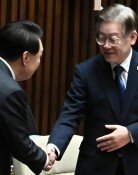RAMSI Invites Conflicting Judgments
The Regional Assistance Mission to the Solomon Islands (RAMSI) has been widely credited with achieving security and prosperity in the Pacific region. However, there is no lack of criticism for its excessive interference in regional affairs.
Since 1998, the Solomon Islands have been locked in armed conflicts between two major tribes, the Guadalcanal and the Malaita. Though there was a ceasefire due to a peace treaty negotiated in October 2000, the conflict resumed in October 2002 when the negotiation period ended. Having exhausted all measures, the government and the legislature of the Solomon Islands turned to Australia.
The Australian government formed RAMSI with countries belonging to the Pacific Islands Forum (PIF) and deployed 2,250 soldiers and police officers to the Solomon Islands in July 2003. Geographical proximity to and frequent human and material exchanges with the Solomon Islands led Australia to help the country. The lack of interest from other powerful nations in the country consisting of nearly 1,000 islands also made Australia lead the mission.
So far, the RAMSI operation has been considered largely successful.
RAMSI has successfully implemented policies that are necessary to rebuild the nation, regarding keeping security, propagating the legitimacy of RAMSIs existence, and establishing the chain of orders in the army and police, said a researcher at the U.S. non-profit institution RAND.
Research teams at Maryland University and George Mason University also classify the Solomon Islands as a country that has succeeded in maintaining peace.
The economic situation has also improved. National revenues grew 2.6 times in 2006 compared to 2002. And its economy grew 5.4 percent last year.
The RAND institute has cited as the key to success of Australias swift coordination among ministries that have differing opinions on RAMSI and the smooth communication with manpower deployed to the Solomon Islands.
The institute also praised RAMSIs strategies that are rarely seen in other cases of nation building.
First of all, the regional assistance mission has provided long-term support by setting a 10-year assistance period and secured legitimacy by entering the country at the request of the government of the Solomon Islands.
RAND pointed out, however, that controversy is brewing because RAMSI placed figures from participating countries at posts in the Solomon Islands government.
A total of 475 RAMSI officials are now working at security and administrative posts in the Solomon Islands government. This has made local residents raise suspicions that RAMSI is not just giving needed assistance but is a way to occupy their country.
The accumulating complaints against RAMSI were well demonstrated in a set of political events that unfolded in April 2006. When a pro-RAMSI political figure was elected prime minister, citizens rose up and eventually the newly elected prime minister was replaced with an anti-RAMSI figure.
Regarding Australias move to deploy its army and police to Papua New Guinea and Fiji, in addition to the Solomon Islands, the Wall Street Journal pointed out that Australias role of police in the Pacific region has clearly contributed to regional stability. But it is also being criticized for pushing neo-colonialist agendas.
Reforming the Solomon Islands fundamentally will be more of a daunting task. The experience of RAMSI has shown what a difficult job it is to be involved in the rebuilding of other countries, even when the conditions are favorable, said a researcher at RAND.
will71@donga.com
Headline News
- Med professors announce intention to leave hospitals starting Thursday
- Bridge honoring Sgt. Moon Jae-sik unveiled in Pennsylvania
- Chief of Staff Chung tells presidential secretaries to stay away from politics
- US FTC bans noncompete agreements
- N. Korea launches cyberattacks on S. Korea's defense companies







